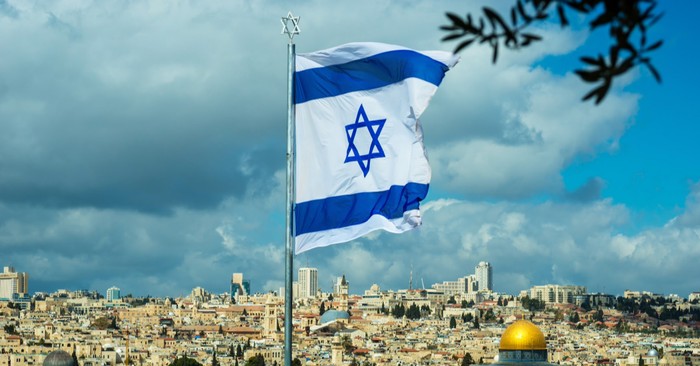
The 12 tribes of Israel came from Jacob’s 12 sons. Each tribe was named after one of Jacob’s children or grandchildren.
One of the most intriguing concepts in Scripture is the establishment of the 12 tribes of Israel. I find it amazing how we see a connection from the old covenant to the new covenant of Christ. We see 12 tribes established out of the line of Israel, then we see 12 disciples established from a variety of backgrounds. Each of these tribes had a significant role and responsibility for the nation of God’s people. As we acknowledge the Lord’s plan for His people, we can gain a greater understanding of what each tribe is known for.
Who Are the 12 Tribes of Israel?
The 12 tribes of Israel came from Jacob’s 12 sons. Each tribe was named after one of Jacob’s children or grandchildren. I love how when we look at the story of Jacob, we see the Lord still choosing to use his broken family for a greater purpose. Jacob was tricked into marrying Leah, then married her sister Rachel, then the women waged war over who could produce children to the point of giving their servants Bilhah and Zilpah to their husband. Out of these four women in a damaging life situation, came the 12 tribes of Israel. Below is the order of the sons of Israel (Jacob), the meaning of their names, and what each tribe is known for.
Reuben: “It is because the LORD has seen my misery. Surely my husband will love me now” (Genesis 29:32) The tribe of Reuben had territory east of the Dead Sea. They were never blessed like they could have been because Reuben sinned against his father with Bilhah (Genesis 35:22).
Simeon: “Because the LORD heard that I am not loved, he gave me this one too” (Genesis 29:33). The tribe of Simeon had territory far west of the Dead Sea. Because Simeon and Levi took out their anger in violence trying to avenge their sister Dinah, they were punished by being scattered (Genesis 49:5-7).
Levi: “Now at last my husband will become attached to me., because I have borne him three sons” (Genesis 29:34.) The tribe of Levi was the group of priests in Israel. Levi was also punished because of his violence with Simeon and told that his tribe would be scattered. Levi was different from any tribe because they were the priests. They were not counted in the census of Israel (Numbers 1:49). Aaron (Moses’ brother) led the Levitical priests. The Levites were set apart for a special purpose to serve their lives in ministry to God.
Judah: “This time I will praise the LORD” (Genesis 29:35). Judah was a very redemptive character because although he did not want to kill Joseph, it was his idea to sell Joseph into slavery (Genesis 37). Then, he was the brother who would not leave Benjamin (Genesis 44). The tribe of Judah was significantly blessed by Jacob. He gave Judah the blessing of royalty because Jesus, the Savior would, come from the line of Judah (Matthew 1:3). Judah’s territory was the southwest region.
Dan: “God has vindicated me; he has listened to my plea and given me a son” (Genesis 30:6). The tribe of Dan is described as providing justice for the nation (Genesis 49:16-18). Dan was located east on the Mediterranean.
Naphtali: “I have had a great struggle with my sister, and I have won” (Genesis 30:8). The tribe of Naphtali produced freedom and beauty (Genesis 49:21). The tribe was located north of Galilee.
Gad: “What good fortune!” (Genesis 30:11). The tribe of Gad was said to be attacked by raiders but they would attack them back (Genesis 49:19). Gad was located east of the Jordan River.
Asher: “How happy I am! The women will call me happy” (Genesis 30:13). The food of Asher is said to be rich (Genesis 49:20). This tribe was located northwest on the Mediterranean.
Issachar: “God has rewarded me for giving my servant to my husband” (Genesis 30:18). The tribe of Issachar was located just southwest of Galilee in northwest Israel. Jacob describes him as a “rawboned donkey lying down” and says that they will do forced labor (Genesis 49:14-15).
Zebulon: “God has presented me with a precious gift. This time my husband will treat me with honor, because I have borne him six sons.” The tribe of Zebulun was located on the northeast side of Israel. They were blessed to live close to the seashore and be a haven for ships (Genesis 49:13).
Manasseh: “It is because God has made me forget all my trouble and all my father’s household” (Genesis 41:51) This is the oldest son of Joseph: “God has taken away my disgrace” (Genesis 30:23). The tribe of Joseph was split into two names after his sons (Genesis 48:13-22). Manasseh was given the most land and was placed over the Jordan River.
Ephraim: “It is because God has made me fruitful in the land of my suffering” (Genesis 41:52). This is the second-born son of Joseph. His land was situated south of Manasseh and west of the Jordan River. Ephraim however was blessed with Jacob’s right hand instead of his older brother. Jacob went against tradition by giving Ephraim the greater blessing. He gave Manasseh and Ephraim the ridge from the Amorites.
Benjamin: “But his father named him Benjamin” (Genesis 35:18). Behind the Name defines Benjamin as meaning, “‘son of the south’ or ‘son of the right hand.’” Benjamin’s tribe is described as a ravenous wolf and conquerors. (Genesis 49:27) The land of Benjamin is situated south of Ephraim and the Jordan River and north of Judah and the Dead Sea.
Why Did God Choose 12 Tribes of Israel?
When we talk about our God being the “God of Abraham, Isaac, and Jacob,” they are known as the Patriarchs of the faith. We had three men with one calling to make a great nation for the glory of God. The 12 tribes were chosen first because they were from the line of Abraham, and secondly because they were the start of the nation of Israel. Bible Study shares, “The meaning of 12, which is considered a perfect number, is that it symbolizes God's power and authority, as well as serving as a perfect governmental foundation. It can also symbolize completeness of the nation of Israel as a whole.”
When we think about the purpose of the tribes of Israel to become a nation that outnumbers the stars. We connect to the disciples who were to spread the gospel throughout the world. Both instances were connected to the building of the family of God.
What Happened to the 12 Tribes of Israel?
The 12 tribes of Israel eventually split into a northern and a southern region. Clarence L. Haynes from Crosswalk shares, “When the nation split into the two kingdoms after Solomon's death, Judah remained faithful to David.”
The Bible Odyssey shares, “The southern kingdom consisted only of the tribes of Judah and Benjamin and thus became the kingdom of Judah, with Jerusalem as its capital. The northern kingdom consisted of the remaining tribes and was called Israel.”
Bethlehem, where Jesus was born was located in Judah. Due to the attacks from outside nations, the only two official countries left today include Israel and Judah. Many of the lands that belonged to the tribes have been overtaken by others. As you have likely seen in your lifetime, the conflict continues today of outside nations design to take the land that was given to the people of God.
Why Is it Important for Christians to Know about This Today?
It is important that Christians know about the history of the founding fathers of our faith. Yes, the Jewish people respect the original 12 tribes, but ultimately, so do we since our Savior came from the Jewish people. The Messiah came from the line of Judah. We celebrate the work and honor the history of Israel. It is vital that we stand beside Israel and support them as a nation because the Bible commands it. In the Abrahamic Covenant, God promises to bless those who bless Israel and dishonor those who curse them (Genesis 12:3). As we explore the history of the 12 tribes of Israel, we can learn about the ultimate redemption plan of our Savior Jesus who would one day come from this nation.
Further Reading
Just Who Were the 12 Tribes of Israel and What Happened to Them?
What Is the Significance of the Twelve Tribes of Israel in the Bible?
Photo credit: ©Getty Images/John Theodor








